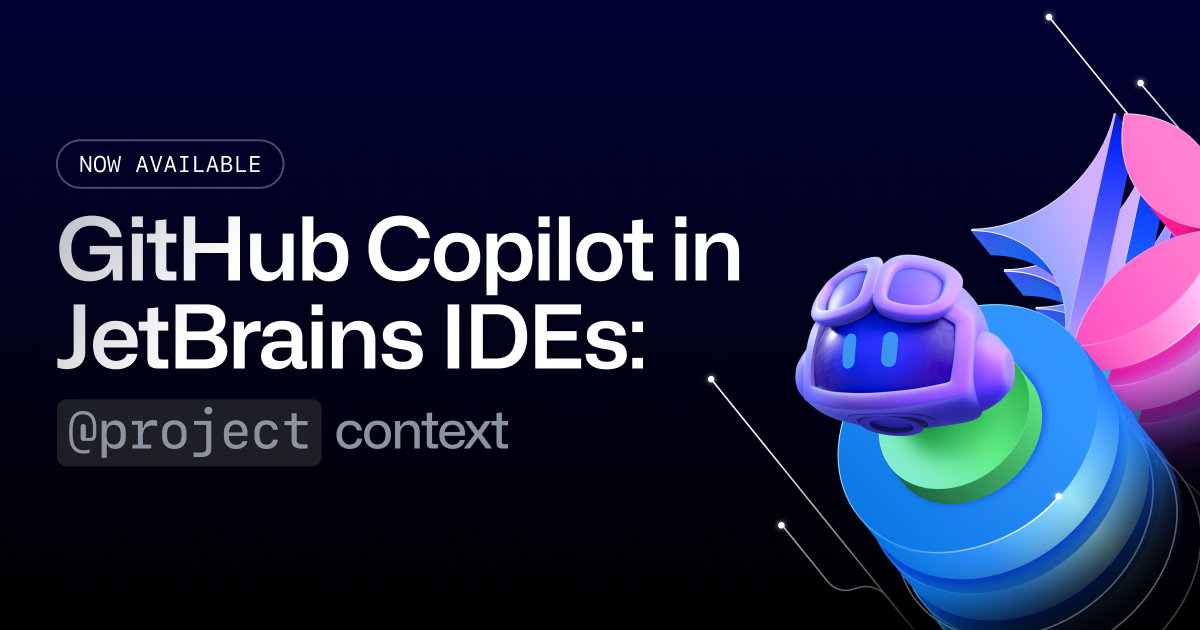GitHub Copilot in JetBrains IDEs: @project context and commit message suggestions

The GitHub Copilot plugin for JetBrains IDES now helps you ask questions about your entire codebase, via @project, and Copilot can help you out even more by generating commit message suggestions.
@project context
With @project context, you can ask any question you have about your project, and Github Copilot will read your entire project’s codebase and return detailed answers with references to relevant files and symbols. @project context helps you find the code you’re looking for, understand how functionality is implemented, and much more.
Commit message suggestions
Now GitHub Copilot in JetBrains will generate commit messages for you, helping you craft informative commit messages and saving you that extra bit of time every day.
UX improvements & bug fixes
This update also includes a few other UX improvements:
- Chat conversations are now ordered by last modified time.
- We fixed a bug where chat conversation history was lost after signing out.
- We fixed color display issues when switching system themes between dark and light.
Get started and join the discussion
Try out the latest version of the GitHub Copilot plugin and share your thoughts in the GitHub Community. We’d love to hear your feedback!